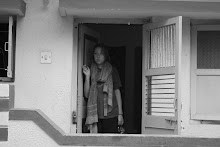I got into a debate with a coworker. He was of the perspective that if you’re not a member of a community, then you’re out of place to be helping that community. In other words, communities have to be the ones to help themselves. As a believer in empowerment, there’s truth to that. But let’s go deeper and get personal here. Full disclosure: I am a white, college-educated* American with two non-divorced lawyer parents, an excessively cute dog, and idyllic childhood memories of summer camp with a brother I worshipped. Hell, I’m even kind of blonde. And I can’t change any of those clichés. Point is, if my community is the socioeconomic structure I grew up in, then my “community” really doesn’t need much help. So was I out of place going to India to lend whatever post-college skills and abilities I had to organizations empowering disenfranchised groups outside my “community”? After you take in that mouthful, I want to delve into the issues. Two of which are identity and upbringing.
On Identity
Does it matter that I was not a “member” of the communities I was working with in India? I just can’t frame it that way. I believe that identity based on nationality, ethnicity, neighborhood, or pretty much anything, often creates unnecessary separation. When in reality, everybody has the capacity to relate to anyone. Pain feels the same; love feels the same no matter who you are or where you live. Of course it’s not just about relatability; it does make sense to work with groups you know and understand. But what if you can connect to others outside your circle through the shared traits of existing on this planet as an individual with emotions? To be clear, the community development work I’m talking about is NOT going to a foreign country and imposing American solutions (ehem, Peace Corps philosophy. No offense). I’m talking about working with a local organization, learning from those on the ground, and responding to their requested needs. No personal, preconceived notions of solutions or answers. No hero desires. And back to the broader points here, I truly believe that regardless of legal or political or community boundaries, each person is worthy of equal respect and concern. That, as Anthony Appiah, a philosopher from Ghana wrote, “No local loyalties can justify forgetting that each human being has responsibilities to each other.” And I feel that obligation deeply. My far-reaching rights as a citizen of the richest and most powerful country in the world yield responsibilities as a global citizen that go far beyond our boundaries. I’m not saying community identification is a bad thing – it’s a human inclination to surround oneself with the familiar and the shared. I am saying, however, that community does not have to be defined by geography. Community can come to mean something that doesn't blind us from the commonalities of being human.
On Upbringing
I am going to put this on the table: we are uncomfortable with “privilege” as a launch pad for working on social change. But why is that when nobody can change their background or their upbringing? First of all, everyone should grow up with access to quality education, healthcare, and respect for human rights to say the least, but not everyone is so lucky. As a result, sometimes adversity is a painful and powerful catalyst for social change. And there can be other catalysts in our upbringings as well. Quite personally, I regret my chagrin about how I was raised- which was a different kind of catalyst. I have even wished for a childhood of a few more hardships so that I’d be able to connect and relate more in community development work. ISN’T THAT MESSED UP? Yes, but I have. I even wished that I was part of a different socioeconomic group so that I could better explain my passion for empowerment and social justice. Seriously, I deserve a slap in the face. These wishes are ludicrous, not productive, and degrading to others! But I want to be honest here. I’ve had it pretty good, and I cannot change or apologize for or lament the social check box I grew up in, so my legitimacy in this type of work has to arise from another source. Or does it? Do I have to shy away from the fact that it’s precisely because I have been incredibly, unjustifiably fortunate that I cannot stand to live in a world that is exceedingly unfair to so so many?
Deep sigh, it is more than identity and upbringing. It comes down to beliefs, to passions, to insatiable desires for a more equitable world. It’s people are people, and sometimes that’s enough.
* If the world were a village of 100, one person would have a college education and 99 people would not.

















+128.JPG)














+053.JPG)
+310.JPG)

